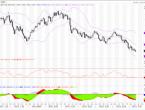EUR/USD
1.18064
0.175%
Gold
5185.26
1.734%
Oil
67.026
1.065%
USD/JPY
154.482
-0.372%
GBP/USD
1.35222
0.246%
GBP/JPY
208.898
-0.126%
The final reading of U.S. durable goods orders in December was -1.4% month-on-month, compared with a previous reading of -1.40%.U.S. factory orders excluding transportation rose 0.4% month-on-month in December, with the previous figure revised from 0.20% to 0.1%.US factory orders fell 0.7% month-on-month in December, compared with an expected decline of 0.5% and a previous reading of 2.70%.Eli Lilly (LLY.N) extended its gains to 4.6%.February 23 - According to foreign media reports, researchers at ASML (ASML.O) stated that they have found a way to increase the power of a key chip manufacturing equipments light source, potentially boosting chip production by up to 50% by the end of this decade. ASML is the only company in the world that manufactures commercial extreme ultraviolet (EUV) lithography equipment, a crucial tool for chipmakers such as TSMC and Intel in producing advanced computing chips. Michael Purvis, ASMLs chief technology officer for EUV lithography, stated in an interview, "This is not a gimmick, nor is it one of those tricks that can only be demonstrated for a very short time. The system can stably output 1000 watts of power while fully meeting the actual usage conditions of our customers."











